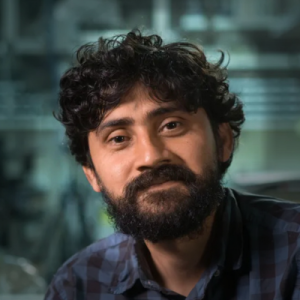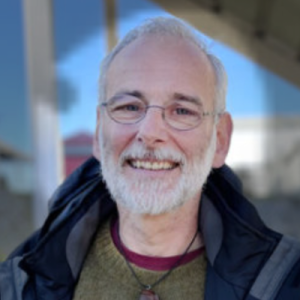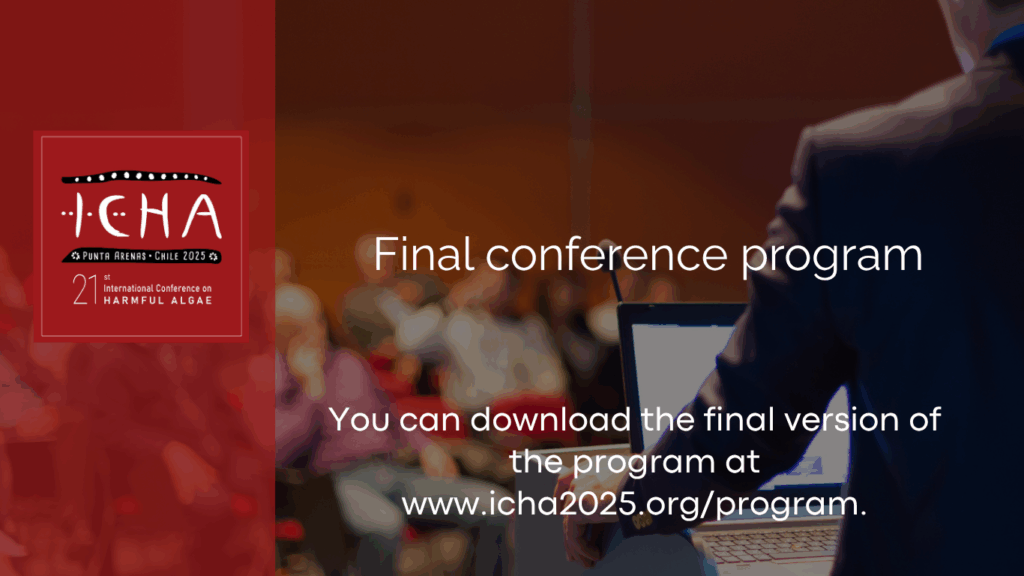Plenary

“Ciguatera Poisoning: Risk management option in light of contributions from science and traditional knowledge”
Mireille Chinain, French Polynesia 
Monday, October 20th
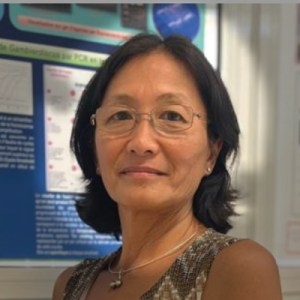
- PhD in Science, Speciality: Parasitology and Comparative Pathology.
- Head of the Laboratory of Marine Biotoxins of Institute Louis Malardé, French Polynesia.
Dr. Chinain serves as co-leader of the Intergovernmental Panel on Harmful Algal Blooms’ international strategy plan for ciguatera. She specializes in the study of ciguatera, a foodborne disease caused by consuming fish contaminated with this type of marine biotoxin. Dr. Chinain has conducted research into the ecology, biodiversity, and taxonomy of the dinoflagellate Gambierdiscus, which causes ciguatera, and has developed methods for toxin detection.
She was the first recipient of the Yasumoto Lifetime Achievement Award in the Pacific region.
“After 25 years of the WHO guideline on toxic cyanobacteria, what real advances have been achieved globally, and what are the main challenges from a public policy perspective?”
Sandra Azevedo, Brazil 
Tuesday, October 21st
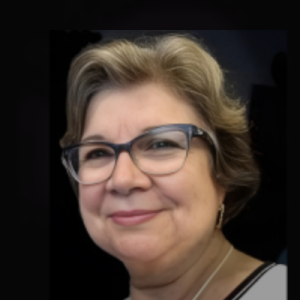
- Bachelor’s Degree in Biological Sciences, Federal University of São Carlos, Brazil.
- Master of Science degree in Ecology and Natural Resources from the Federal University of São Carlos.
- PhD in Ecology and Natural Resources from the Federal University of São Carlos, Brazil Laboratory of Ecophysiology and Toxicology of Cyanobacteria.
- Full Professor Institute of Biophysics Carlos Chagas Filho – IBCCF, Federal University of Rio de Janeiro, Brazil.
Dr Sandra Azevedo, is one of the world’s leading researchers in the field of limnology and ecotoxicology of cyanobacteria that are toxic to human health. Her research focuses on phytoplankton ecology, cyanobacteria, cyanotoxins, bioaccumulation, and their impact on public health. In her lecture, Dr Azevedo will address the current state of research into cyanobacteria.
“From GEOHAB to GlobalHAB and beyond: 30 years of international coordination of research on Harmful Algal Blooms, lessons learnt and next steps”
Elisa Berdalet, Spain 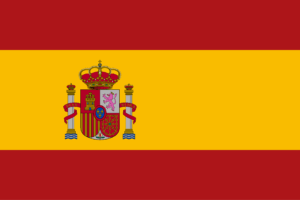
Tuesday, October 21st
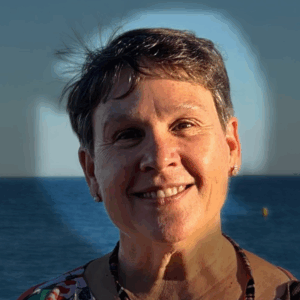
Dr Elisa Berdalet is Senior Researcher at Institute of Marine Sciences (Spanish National Research Council). Her research aims to better understand the structure and dynamics of marine planktonic ecosystems and their responses to environmental or anthropogenic forcings. Expert in algal blooms, eutrophisation and ocean health.
“The secret lives of plankton”
Manu Prakash, USA 
Wednesday, October 22nd
- PhD of Science degree in Applied Physics, Massachusetts Institute of Technology (MIT), USA.
- Master of Science degree in Applied Physics, Massachusetts Institute of Technology (MIT), USA.
- Bachelor of Science in Technology, Computer Science and Engineering, Indian Institute of Technology.
- Associate Professor of Bioengineering, Senior Research Fellow at the Woods Institute (Standford University) for the Environment and Associate Professor, by courtesy, of Oceans and Biology.
Dr Prakash, a scientist and professor of bioengineering at Stanford University, contributed to the design of the ‘Foldscope’, a low-cost optical microscope. This initiative is part of the ‘Frugal Science’ movement, which aims to make cheap and simple tools available for scientific use. One of the many global applications of the Foldscope is its use for monitoring toxic microalgae in remote locations
“Environmental drivers of neurotoxin BMAA production in marine diatoms and its biosynthesis pathway”
Dr. Aifeng Li, China 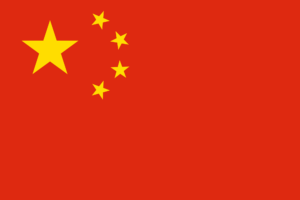
Wednesday, October 22nd
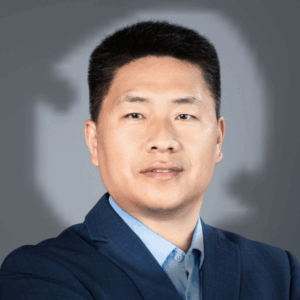
Dr. Aifeng Li’s research focuses on marine emerging contaminants and ecosystem health, including phycotoxins, microplastics, and perfluorinated compounds. His research includes the following areas:
Chemical ecology of aquatic toxins: Biosynthesis of phycotoxins: Monitoring methods for marine toxins; Metabolomics of phycotoxins in shellfish and Purification of emerging toxins.
“Spatio-Temporal Expansion of HABs and Marine Biotoxins in Chile: 30 Years of a Country Response through Science, Early Warning Strategies and Management”
Benjamín Suárez-Isla, Chile 
Thursday, October 23rd
- Bachelor’s degree in chemistry from the Faculty of Sciences of the University of Chile.
- PhD in Membrane Biochemistry from the University of Konstanz in Germany. He undertook postdoctoral research in England and at the Max Planck Institute in Germany, specializing in ion channel biophysics, before completing his studies at the National Institutes of Health in Washington, DC.
- Director and founder, Laboratory of Marine Toxins Laboratory of the Faculty of Medicine, University of Chile.
Dr Suárez has an outstanding track record in studying marine toxins and their impact on public health and food safety. His scientific work has enabled the development and validation of methods for the detection of marine biotoxins, and has contributed to the study of detoxifying contaminated molluscs through industrial processes and other strategies for mitigating the impacts of harmful algal blooms (HAB) in Chile.
“What we know about ichthyotoxic microalgal species and their toxins
Bernd Krock, Germany 
Friday, October 24th
- Senior Scientist, Ecological Chemistry, Alfred Wegener Institute, Bremerhaven, Germany
- University of Jena, PhD
- Bachelor’s degree in chemistry, University of Konstanz.
- Analytical Chemist at the University of Ulm.
Dr Bernd Krock, a leading chemist at the Alfred Wegener Institute (AWI) in Bremerhaven, Germany, is an expert in phycotoxins and the analysis of trace organic compounds. He specializes in plant and algal secondary metabolites, as well as ecologically relevant signaling compounds. In recent years, he has worked on developing methods for detecting marine biotoxins by LC-MS/MS and discovery of new algal toxins as well as their producing organisms.



